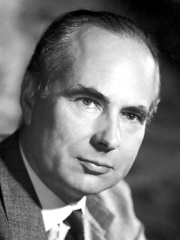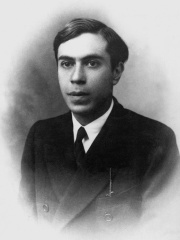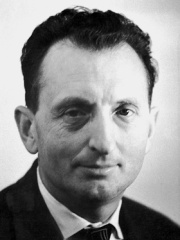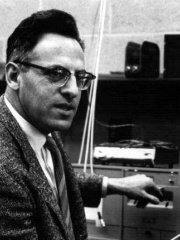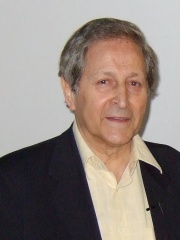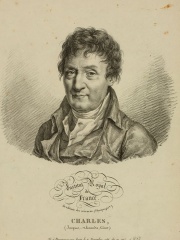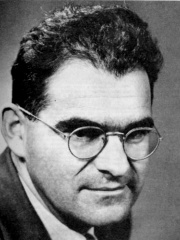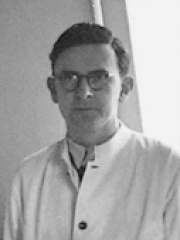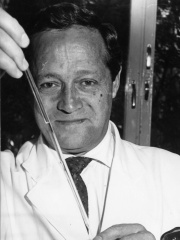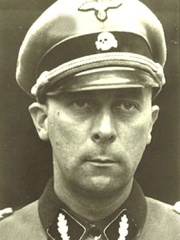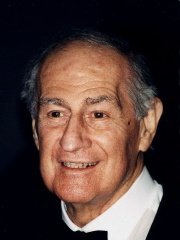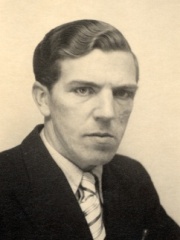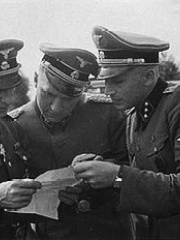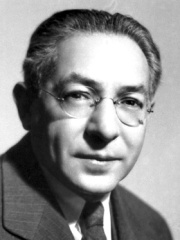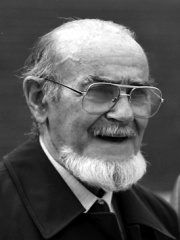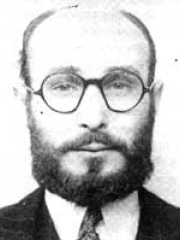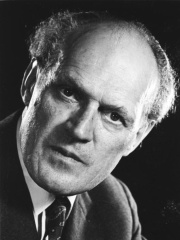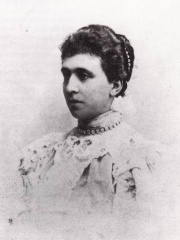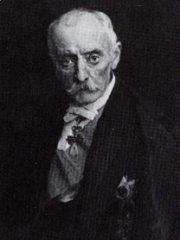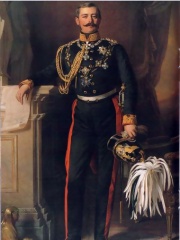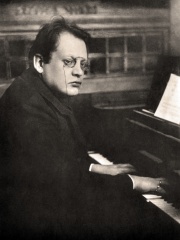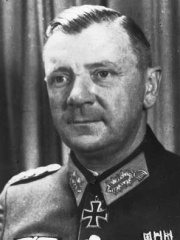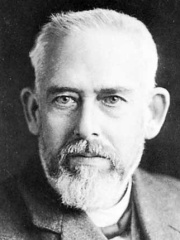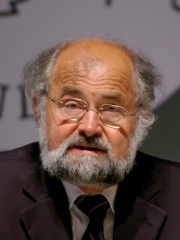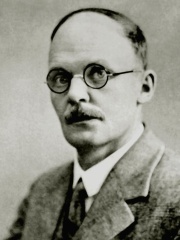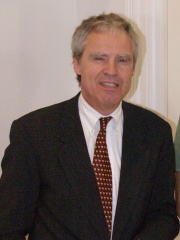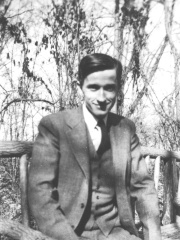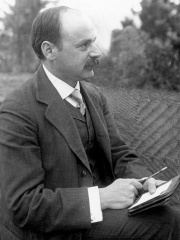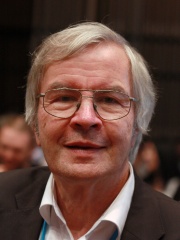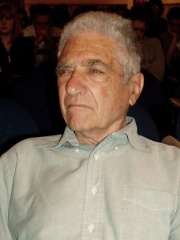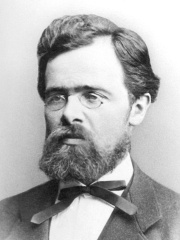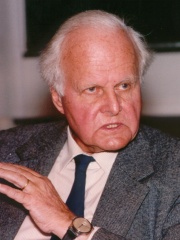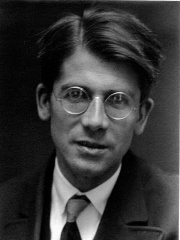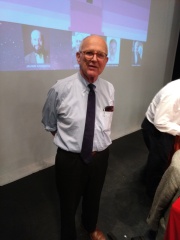Físico
Klaus Fuchs
1911 - 1988
ES.WIKIPEDIA PAGE VIEWS (PV)

 Klaus Fuchs
Klaus Fuchs
Su biografía está disponible en 39 idiomas en Wikipedia. Klaus Fuchs ocupa el puesto 229 entre los físico más populares (bajó del puesto 160 en 2024), el puesto 674 entre las biografías más populares de Alemania (bajó del puesto 536 en 2019) y el puesto 37 entre los físico de alemania más populares.
Memorability Metrics
Page views of Klaus Fuchs by language
Among Físicos
Among físicos, Klaus Fuchs ranks 229 out of 851. Before him are Michio Kaku, Andrew Huxley, Makoto Kobayashi, Ettore Majorana, Alexander Prokhorov, and Frederick Reines. After him are Edme Mariotte, Robert Hofstadter, Claude Cohen-Tannoudji, Jacques Charles, Victor Weisskopf, and Tsung-Dao Lee.
Most Popular Físicos in Wikipedia
Go to all RankingsMichio Kaku
1947 - Present
HPI: 71.01
Rank: 223
Andrew Huxley
1917 - 2012
HPI: 71.01
Rank: 224
Makoto Kobayashi
1944 - Present
HPI: 70.90
Rank: 225
Ettore Majorana
1906 - 1959
HPI: 70.81
Rank: 226
Alexander Prokhorov
1916 - 2002
HPI: 70.80
Rank: 227
Frederick Reines
1918 - 1998
HPI: 70.79
Rank: 228
Klaus Fuchs
1911 - 1988
HPI: 70.74
Rank: 229
Edme Mariotte
1620 - 1684
HPI: 70.69
Rank: 230
Robert Hofstadter
1915 - 1990
HPI: 70.69
Rank: 231
Claude Cohen-Tannoudji
1933 - Present
HPI: 70.67
Rank: 232
Jacques Charles
1763 - 1823
HPI: 70.65
Rank: 233
Victor Weisskopf
1908 - 2002
HPI: 70.58
Rank: 234
Tsung-Dao Lee
1926 - 2024
HPI: 70.51
Rank: 235
Contemporaries
Among people born in 1911, Klaus Fuchs ranks 37. Before him are Niels Kaj Jerne, Feodor Lynen, Robert Johnson, Wilhelm Mohnke, Gian Carlo Menotti, and Max Frisch. After him are Trygve Haavelmo, Odysseas Elytis, Lê Đức Thọ, Richard Baer, Jules Dassin, and Lee Yoo-hyung. Among people deceased in 1988, Klaus Fuchs ranks 21. Before him are Robert A. Heinlein, Isidor Isaac Rabi, Chiang Ching-kuo, Tibor Sekelj, Juan Pujol García, and Trevor Howard. After him are Roy Orbison, Chet Baker, Hiroaki Sato, Kim Philby, Abdul Basit 'Abd us-Samad, and Virginia Satir.
Others Born in 1911
Go to all RankingsNiels Kaj Jerne
PHYSICIAN
1911 - 1994
HPI: 71.41
Rank: 31
Feodor Lynen
CHEMIST
1911 - 1979
HPI: 71.36
Rank: 32
Robert Johnson
MUSICIAN
1911 - 1938
HPI: 71.25
Rank: 33
Wilhelm Mohnke
MILITARY PERSONNEL
1911 - 2001
HPI: 71.08
Rank: 34
Gian Carlo Menotti
COMPOSER
1911 - 2007
HPI: 71.01
Rank: 35
Max Frisch
WRITER
1911 - 1991
HPI: 70.83
Rank: 36
Klaus Fuchs
PHYSICIST
1911 - 1988
HPI: 70.74
Rank: 37
Trygve Haavelmo
ECONOMIST
1911 - 1999
HPI: 70.64
Rank: 38
Odysseas Elytis
WRITER
1911 - 1996
HPI: 70.55
Rank: 39
Lê Đức Thọ
SOCIAL ACTIVIST
1911 - 1990
HPI: 70.55
Rank: 40
Richard Baer
POLITICIAN
1911 - 1963
HPI: 70.41
Rank: 41
Jules Dassin
FILM DIRECTOR
1911 - 2008
HPI: 70.17
Rank: 42
Lee Yoo-hyung
SOCCER PLAYER
1911 - 2003
HPI: 70.16
Rank: 43
Others Deceased in 1988
Go to all RankingsRobert A. Heinlein
WRITER
1907 - 1988
HPI: 72.14
Rank: 15
Isidor Isaac Rabi
PHYSICIST
1898 - 1988
HPI: 72.02
Rank: 16
Chiang Ching-kuo
POLITICIAN
1910 - 1988
HPI: 71.59
Rank: 17
Tibor Sekelj
WRITER
1912 - 1988
HPI: 71.14
Rank: 18
Juan Pujol García
MILITARY PERSONNEL
1912 - 1988
HPI: 71.09
Rank: 19
Trevor Howard
ACTOR
1913 - 1988
HPI: 70.79
Rank: 20
Klaus Fuchs
PHYSICIST
1911 - 1988
HPI: 70.74
Rank: 21
Roy Orbison
SINGER
1936 - 1988
HPI: 70.61
Rank: 22
Chet Baker
MUSICIAN
1929 - 1988
HPI: 70.21
Rank: 23
Hiroaki Sato
SOCCER PLAYER
1932 - 1988
HPI: 69.31
Rank: 24
Kim Philby
MILITARY PERSONNEL
1912 - 1988
HPI: 69.30
Rank: 25
Abdul Basit 'Abd us-Samad
SOCIAL ACTIVIST
1927 - 1988
HPI: 68.70
Rank: 26
Virginia Satir
WRITER
1916 - 1988
HPI: 68.47
Rank: 27
In Alemania
Among people born in Alemania, Klaus Fuchs ranks 674 out of NaN. Before him are Princess Helena of Waldeck and Pyrmont (1861), Karl-Otto Koch (1897), Willy Messerschmitt (1898), Infanta Maria Antonia of Portugal (1862), Chlodwig, Prince of Hohenlohe-Schillingsfürst (1819), and Joachim II Hector, Elector of Brandenburg (1505). After him are Karl Anton, Prince of Hohenzollern (1811), Max Reger (1873), Wilhelm Burgdorf (1895), Max Wolf (1863), Princess Caroline of Great Britain (1713), and Erwin Neher (1944).
Others born in Alemania
Go to all RankingsPrincess Helena of Waldeck and Pyrmont
COMPANION
1861 - 1922
HPI: 70.82
Rank: 668
Karl-Otto Koch
MILITARY PERSONNEL
1897 - 1945
HPI: 70.81
Rank: 669
Willy Messerschmitt
ENGINEER
1898 - 1978
HPI: 70.80
Rank: 670
Infanta Maria Antonia of Portugal
POLITICIAN
1862 - 1959
HPI: 70.77
Rank: 671
Chlodwig, Prince of Hohenlohe-Schillingsfürst
POLITICIAN
1819 - 1901
HPI: 70.76
Rank: 672
Joachim II Hector, Elector of Brandenburg
POLITICIAN
1505 - 1571
HPI: 70.76
Rank: 673
Klaus Fuchs
PHYSICIST
1911 - 1988
HPI: 70.74
Rank: 674
Karl Anton, Prince of Hohenzollern
POLITICIAN
1811 - 1885
HPI: 70.74
Rank: 675
Max Reger
COMPOSER
1873 - 1916
HPI: 70.70
Rank: 676
Wilhelm Burgdorf
MILITARY PERSONNEL
1895 - 1945
HPI: 70.70
Rank: 677
Max Wolf
ASTRONOMER
1863 - 1932
HPI: 70.70
Rank: 678
Princess Caroline of Great Britain
POLITICIAN
1713 - 1757
HPI: 70.67
Rank: 679
Erwin Neher
BIOLOGIST
1944 - Present
HPI: 70.67
Rank: 680
Among Físicos In Alemania
Among físicos born in Alemania, Klaus Fuchs ranks 37. Before him are Hans Geiger (1882), Horst Ludwig Störmer (1949), Max Delbrück (1906), Karl Schwarzschild (1873), Theodor W. Hänsch (1941), and Wolfgang Paul (1913). After him are Jack Steinberger (1921), Carl von Linde (1842), Klaus Hasselmann (1931), Carl Friedrich von Weizsäcker (1912), Friedrich Hund (1896), and Rainer Weiss (1932).
Hans Geiger
1882 - 1945
HPI: 72.18
Rank: 31
Horst Ludwig Störmer
1949 - Present
HPI: 71.83
Rank: 32
Max Delbrück
1906 - 1981
HPI: 71.79
Rank: 33
Karl Schwarzschild
1873 - 1916
HPI: 71.63
Rank: 34
Theodor W. Hänsch
1941 - Present
HPI: 71.55
Rank: 35
Wolfgang Paul
1913 - 1993
HPI: 71.27
Rank: 36
Klaus Fuchs
1911 - 1988
HPI: 70.74
Rank: 37
Jack Steinberger
1921 - 2020
HPI: 69.08
Rank: 38
Carl von Linde
1842 - 1934
HPI: 67.80
Rank: 39
Klaus Hasselmann
1931 - Present
HPI: 67.74
Rank: 40
Carl Friedrich von Weizsäcker
1912 - 2007
HPI: 67.73
Rank: 41
Friedrich Hund
1896 - 1997
HPI: 67.63
Rank: 42
Rainer Weiss
1932 - 2025
HPI: 67.34
Rank: 43

